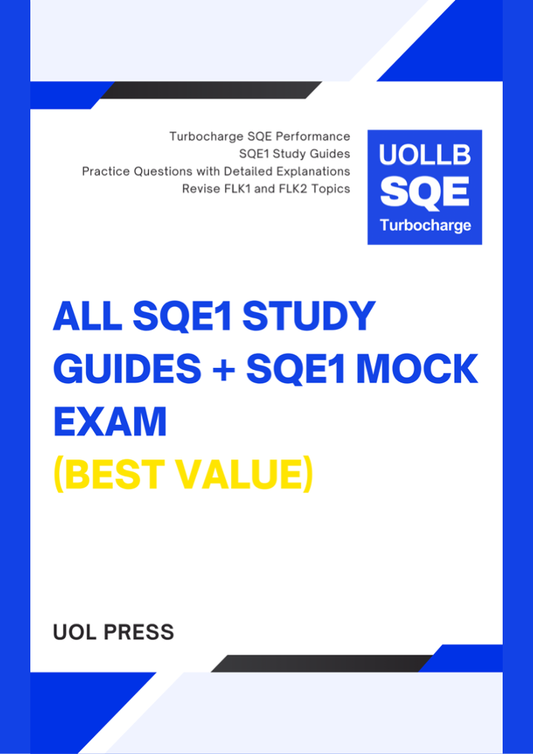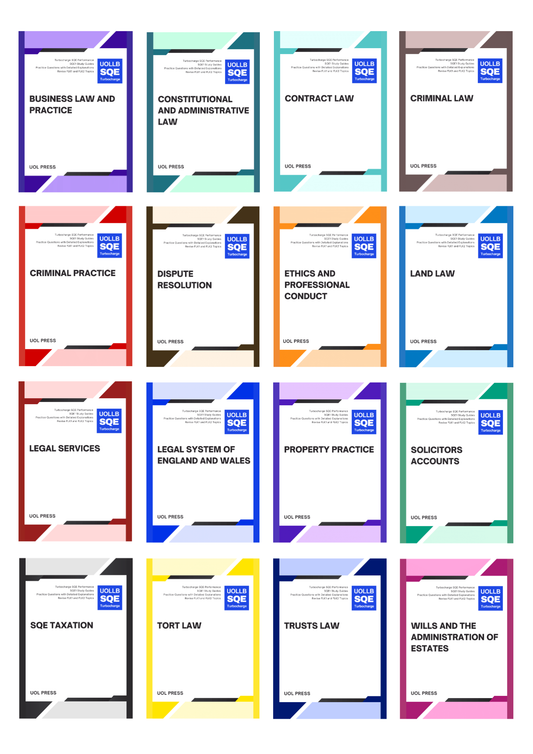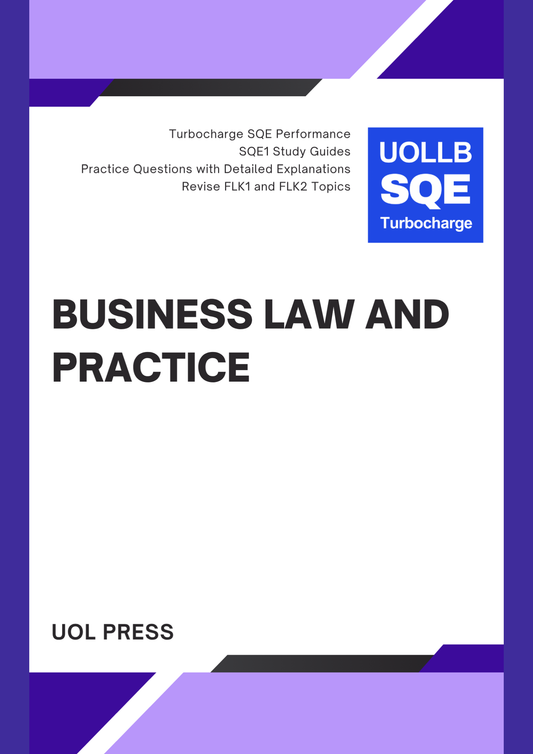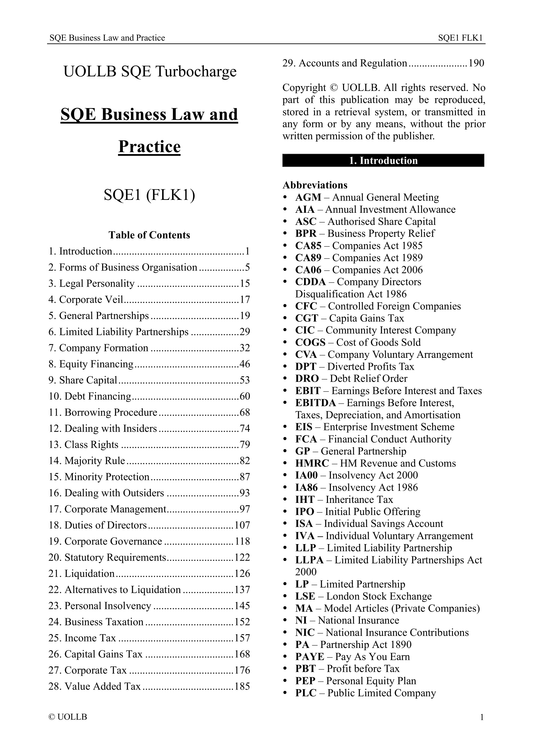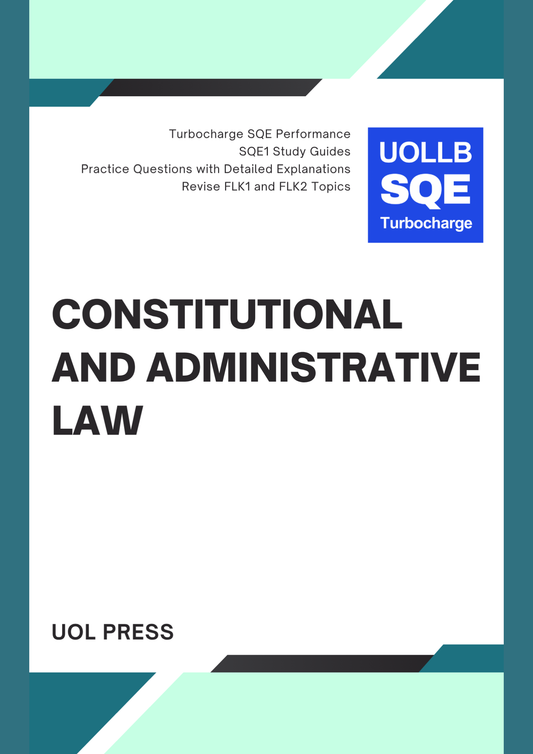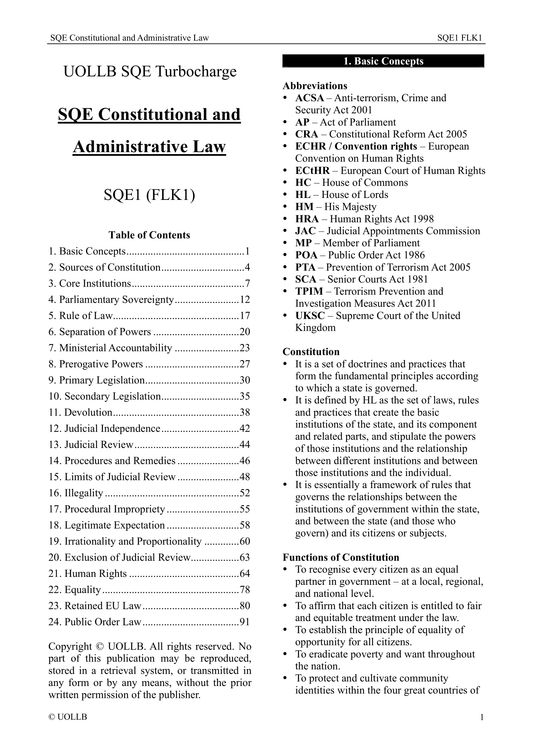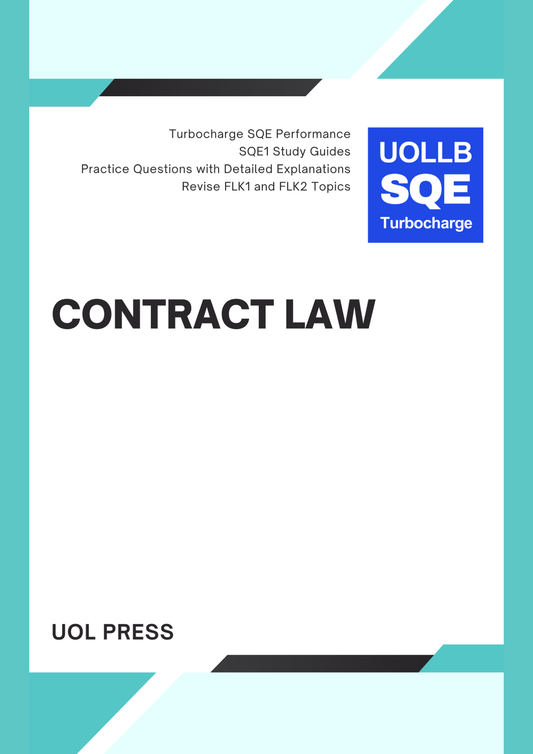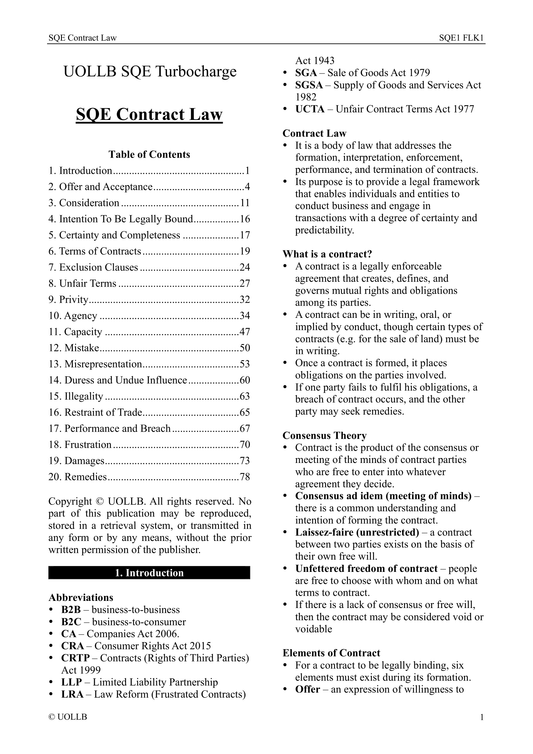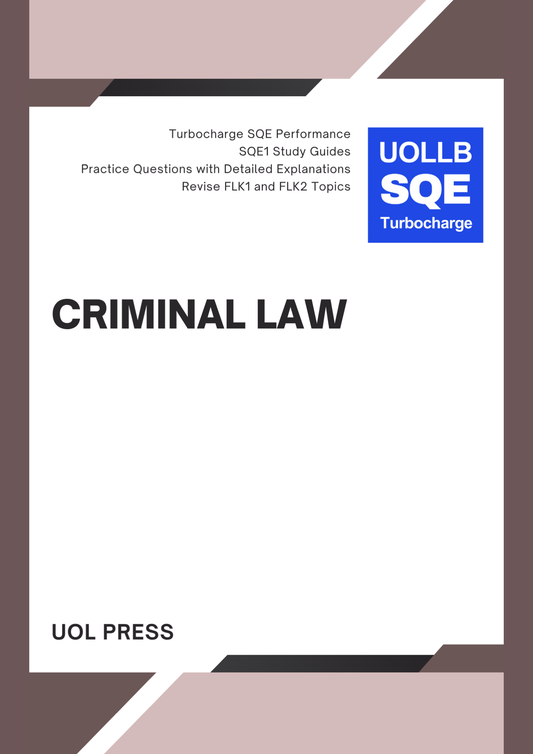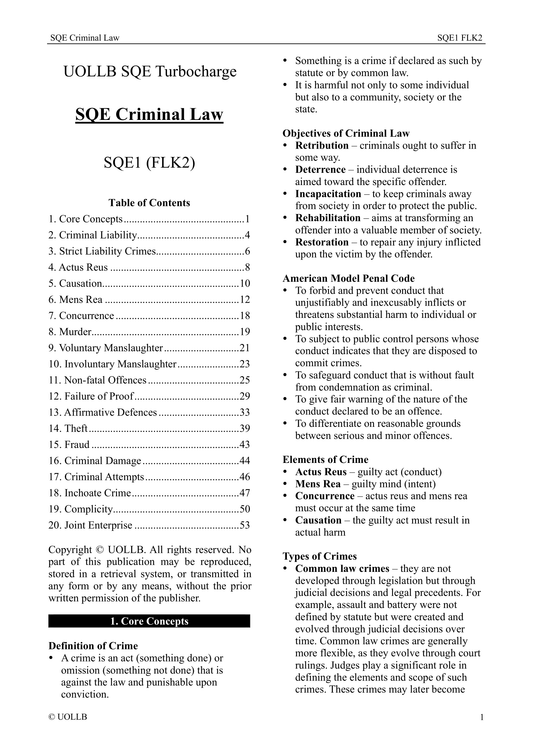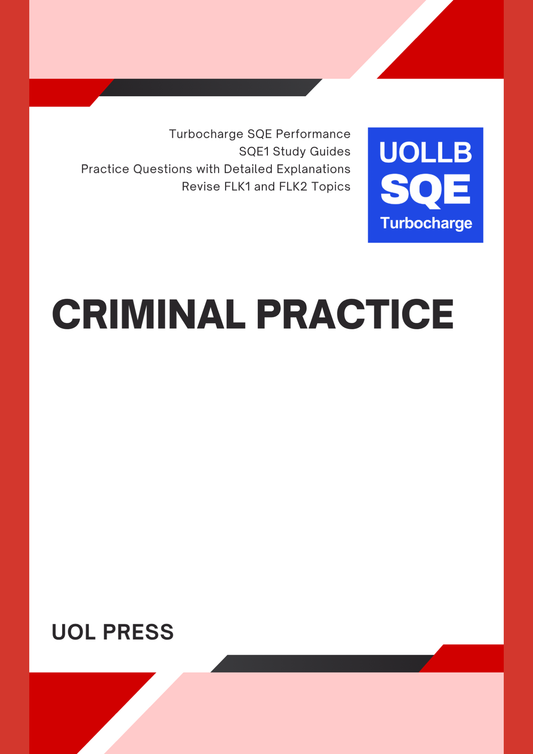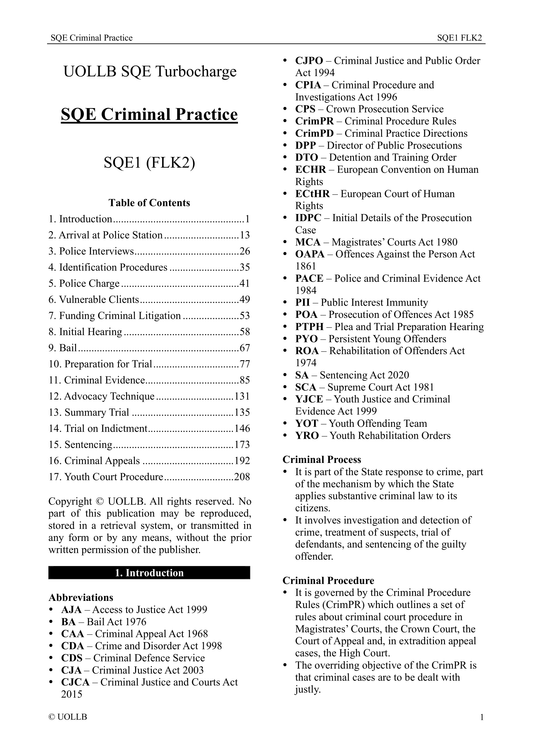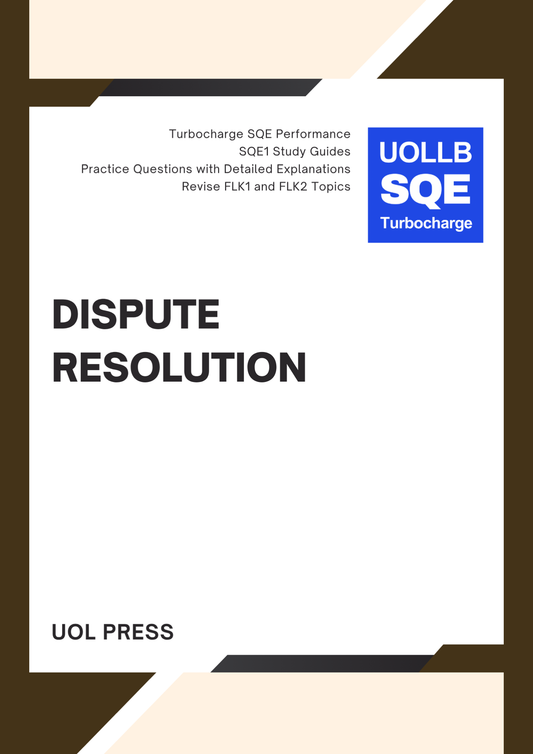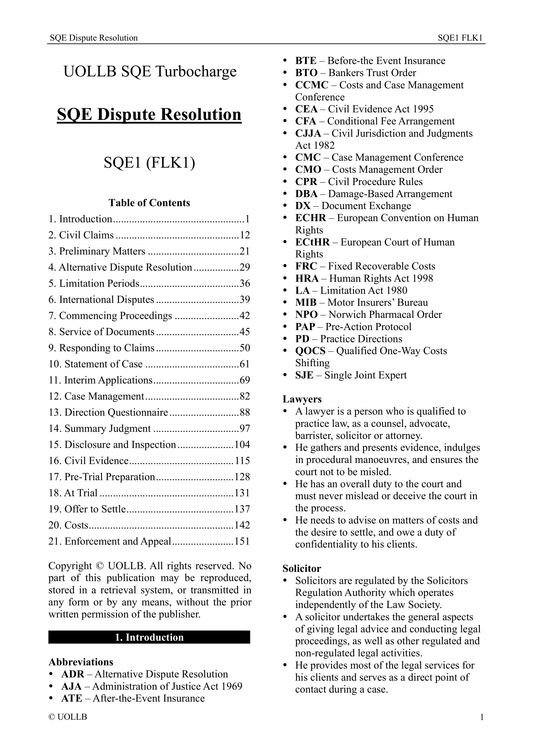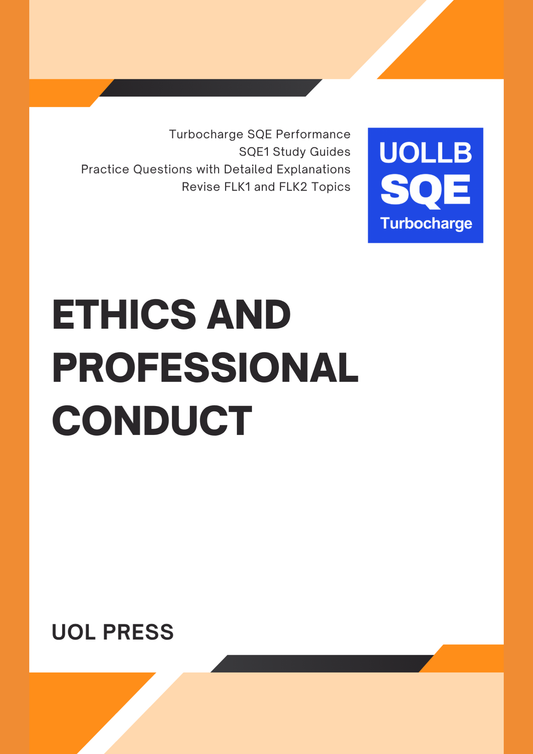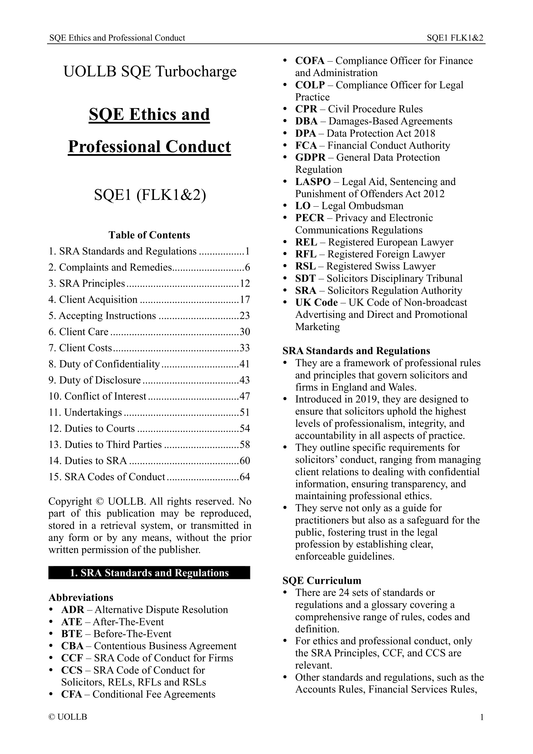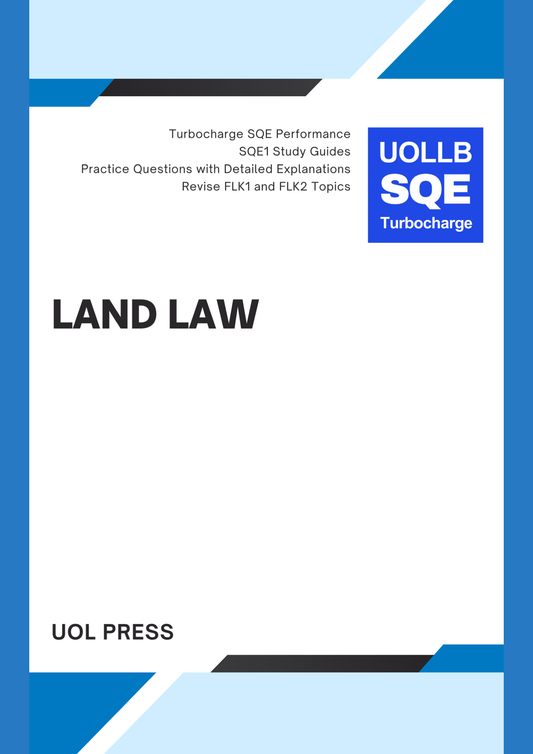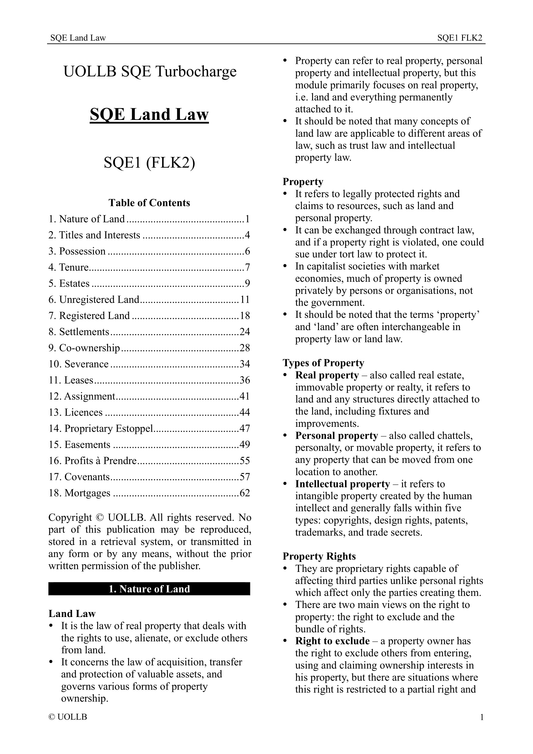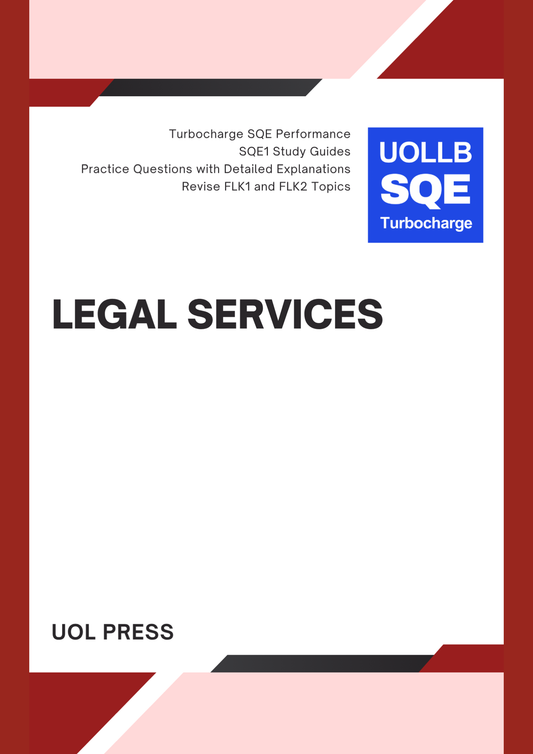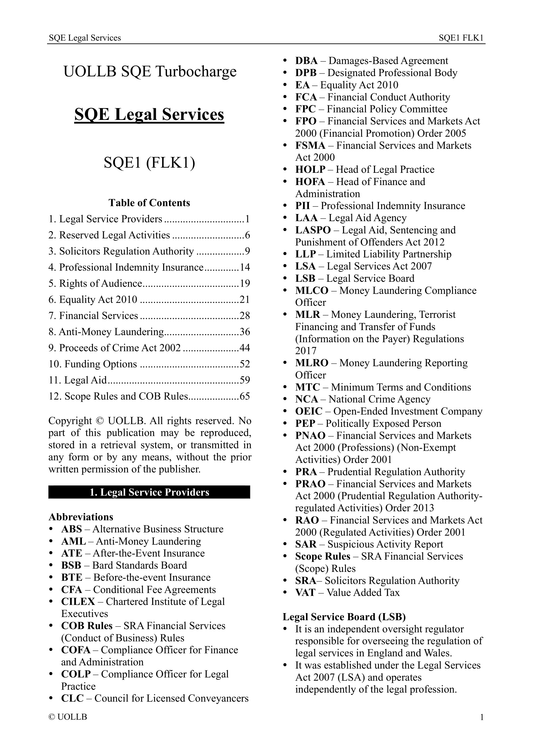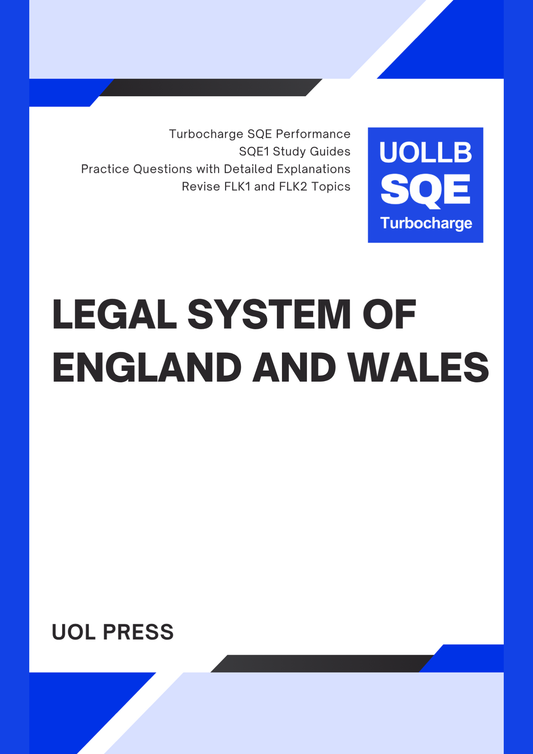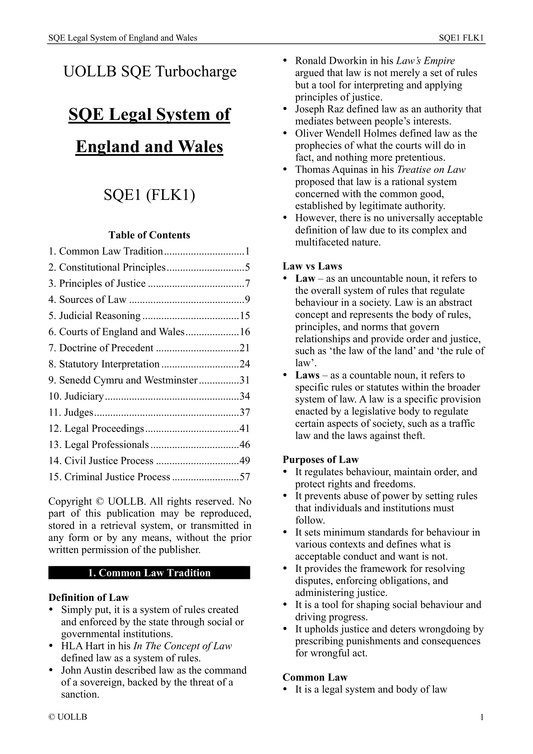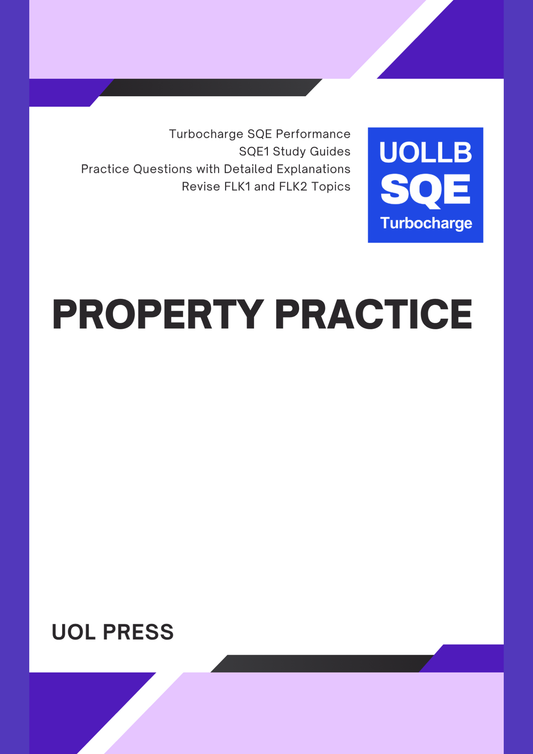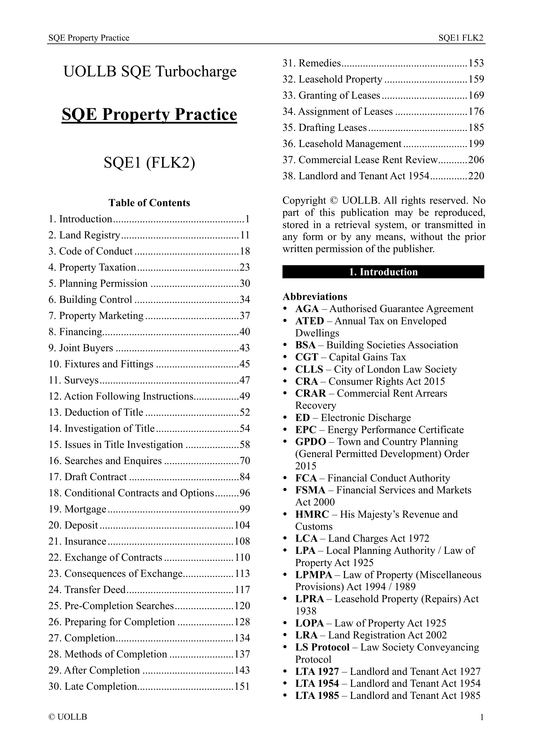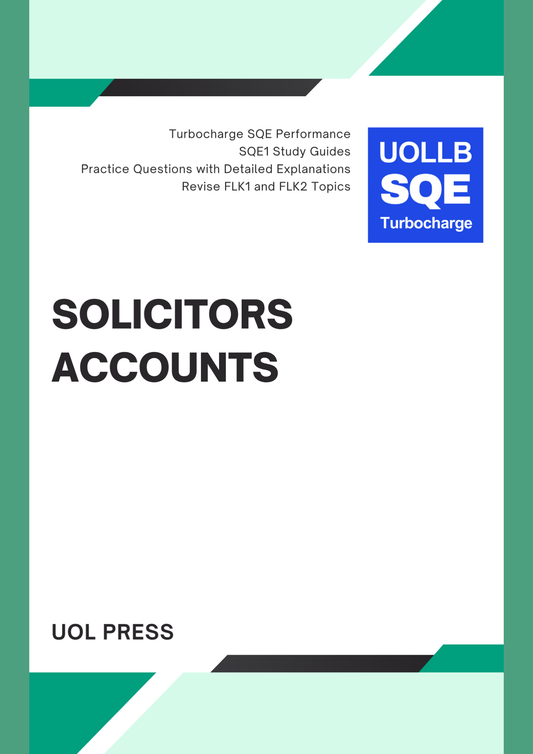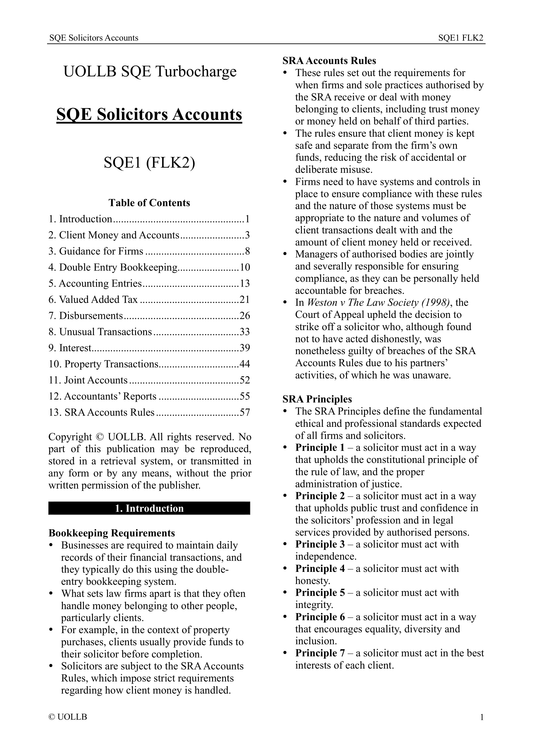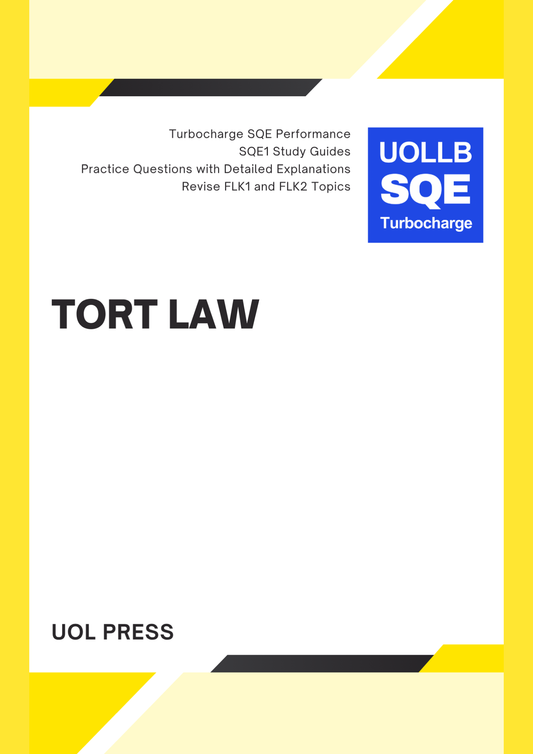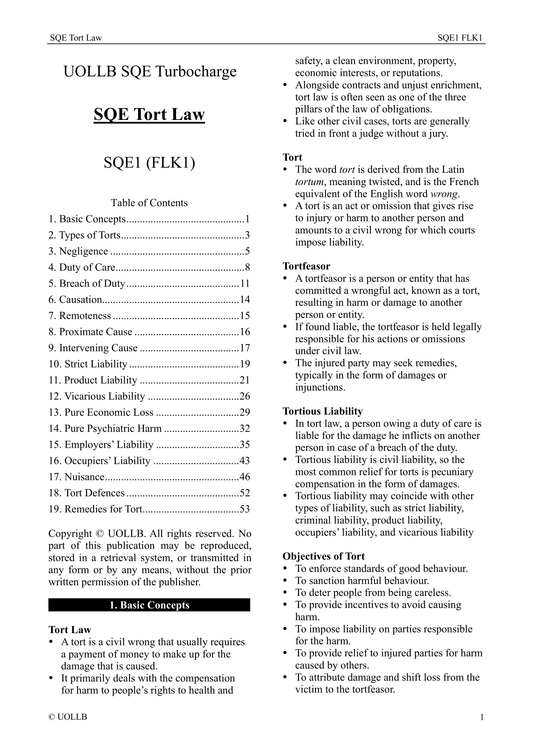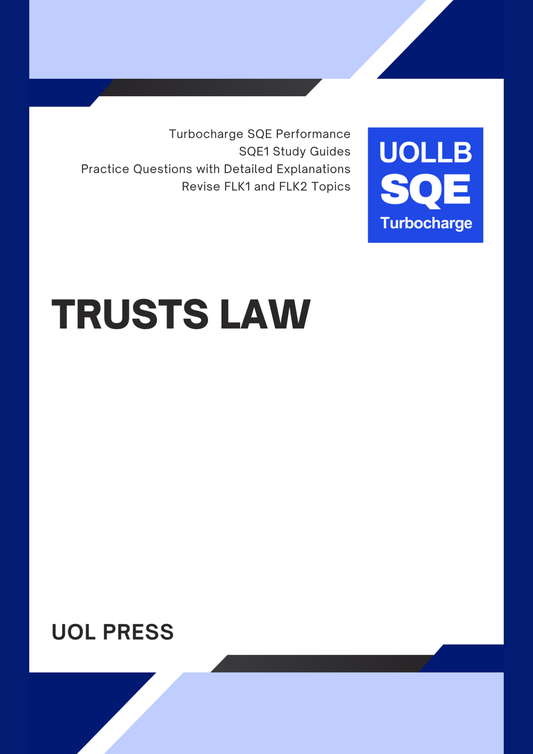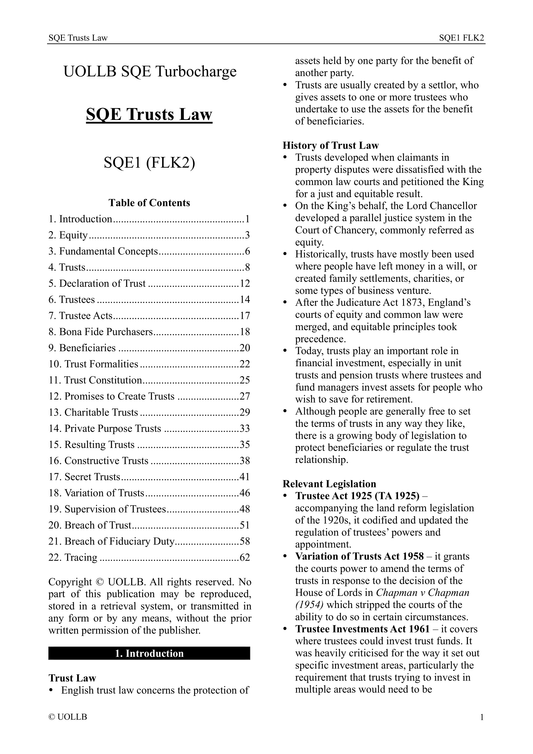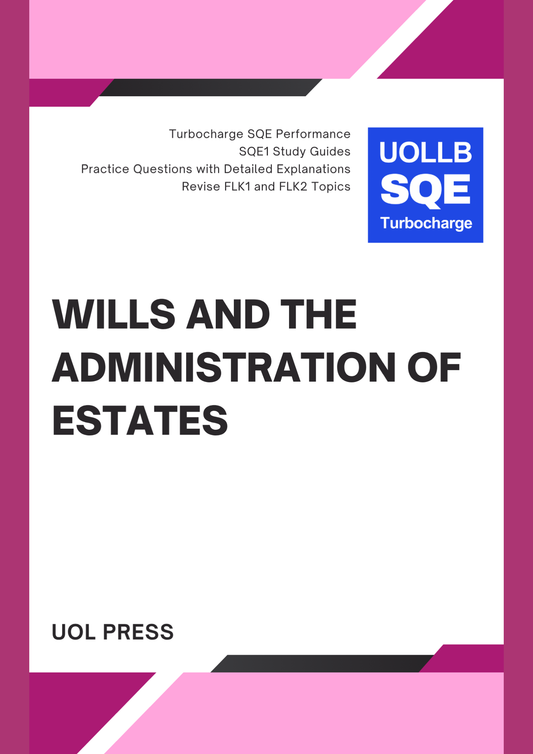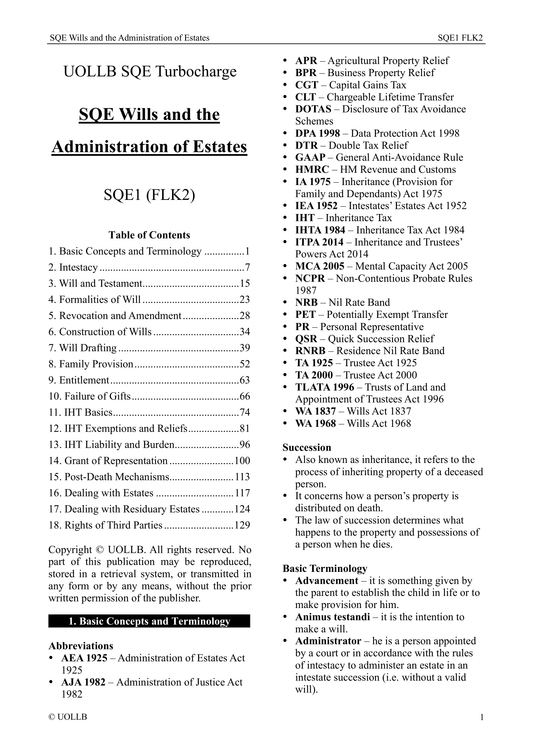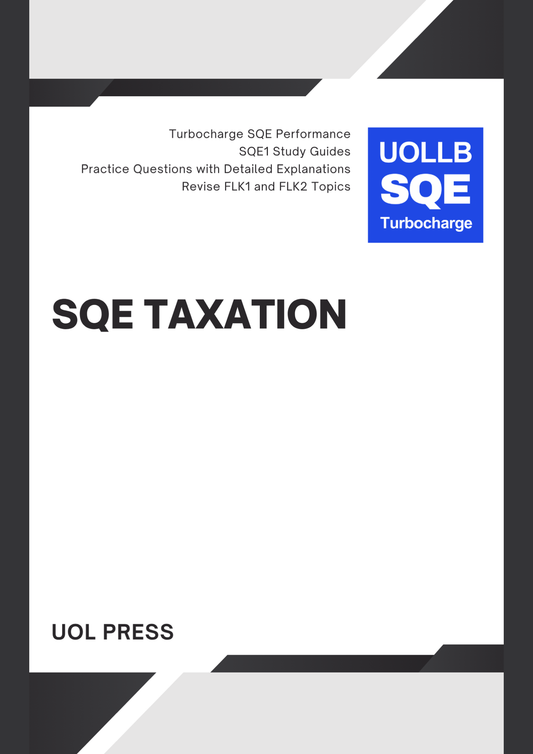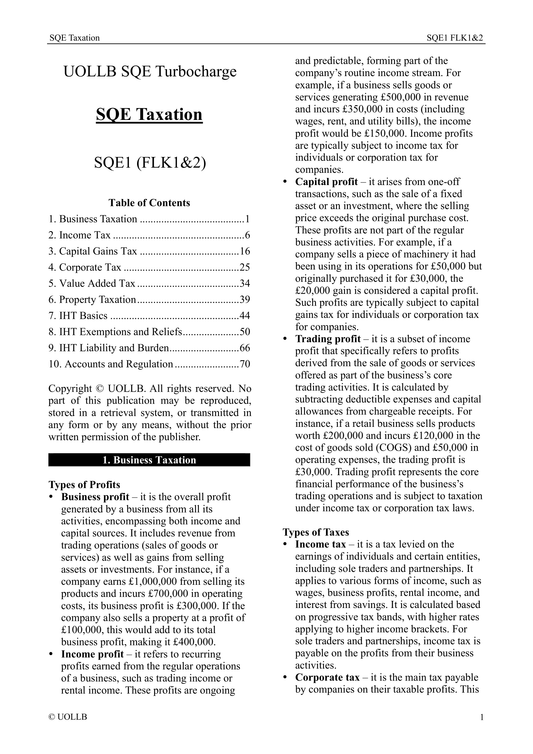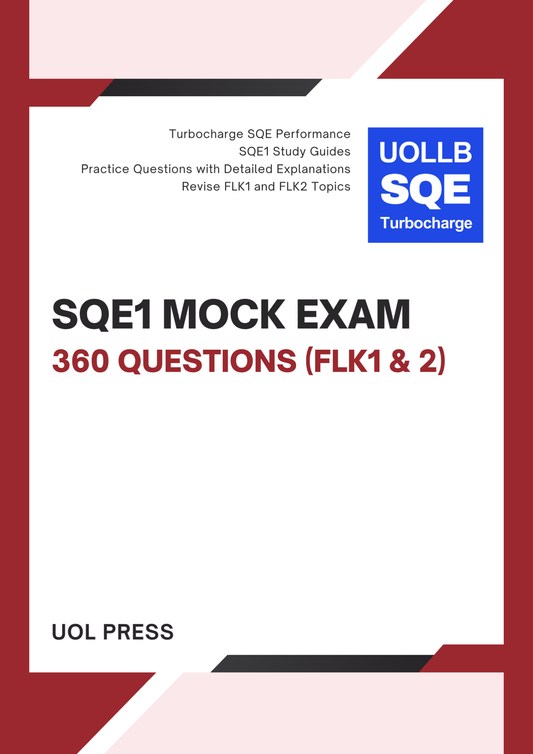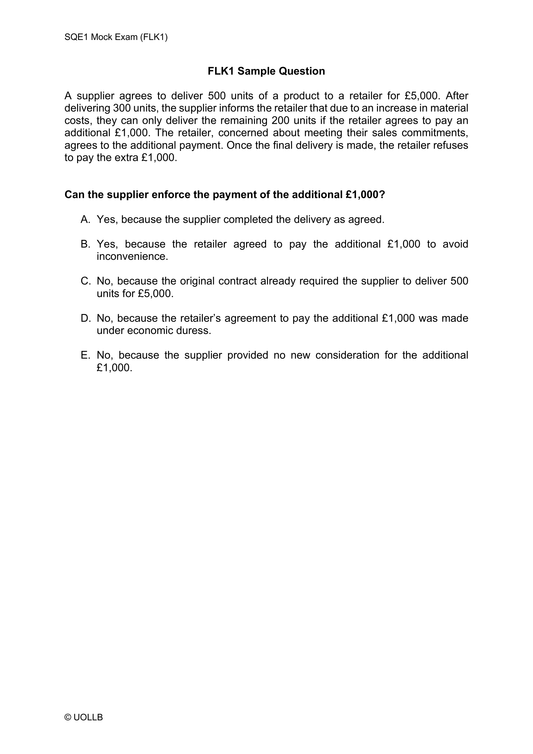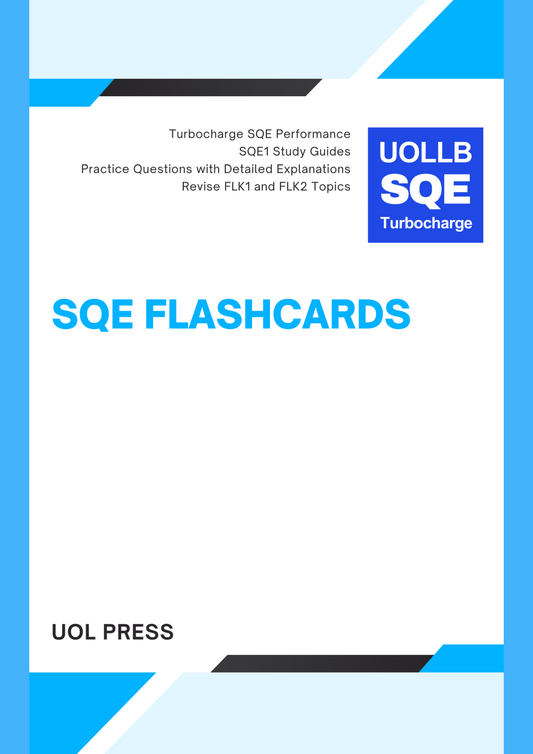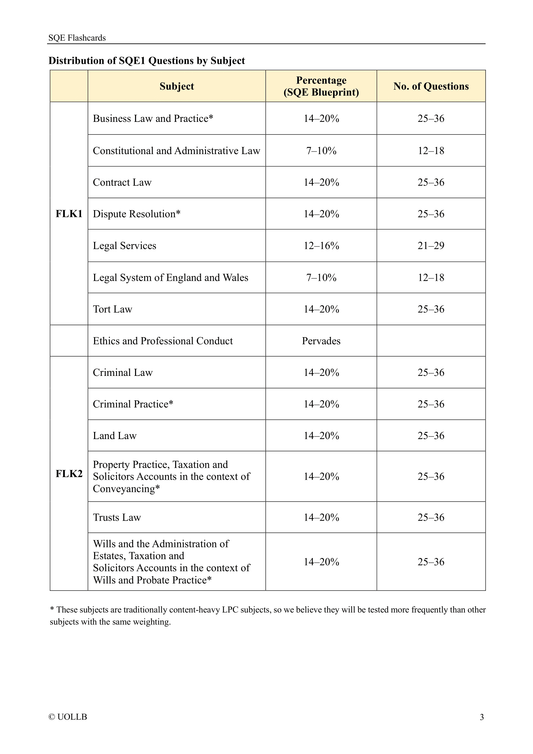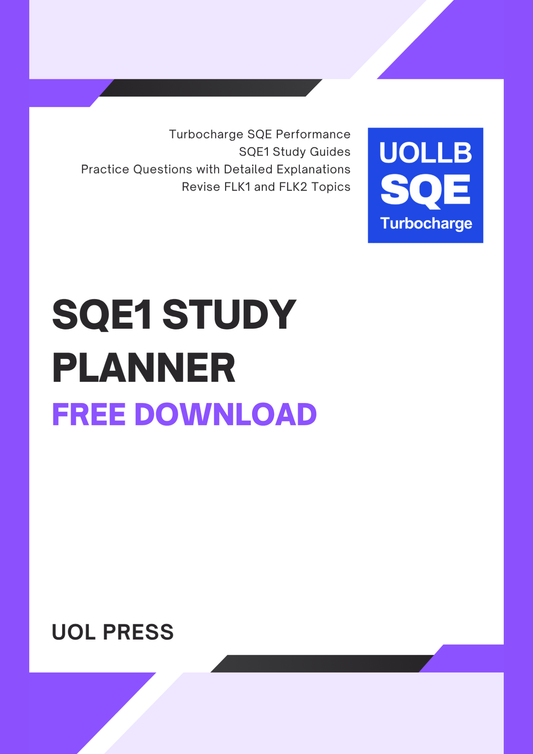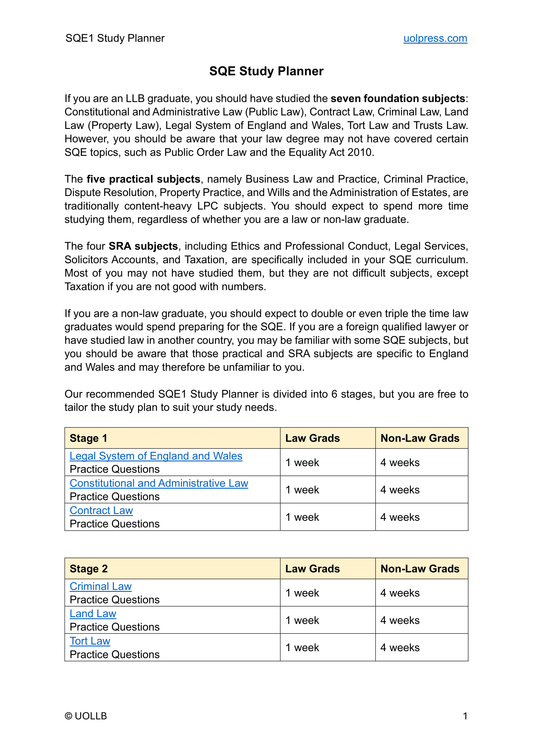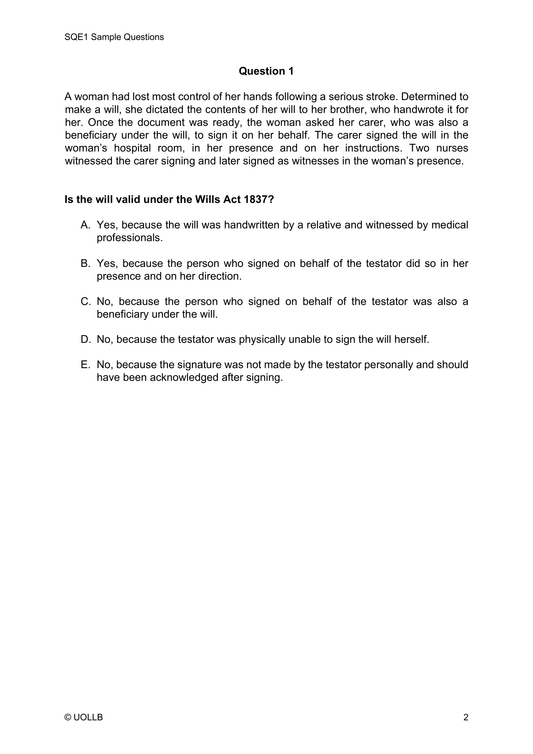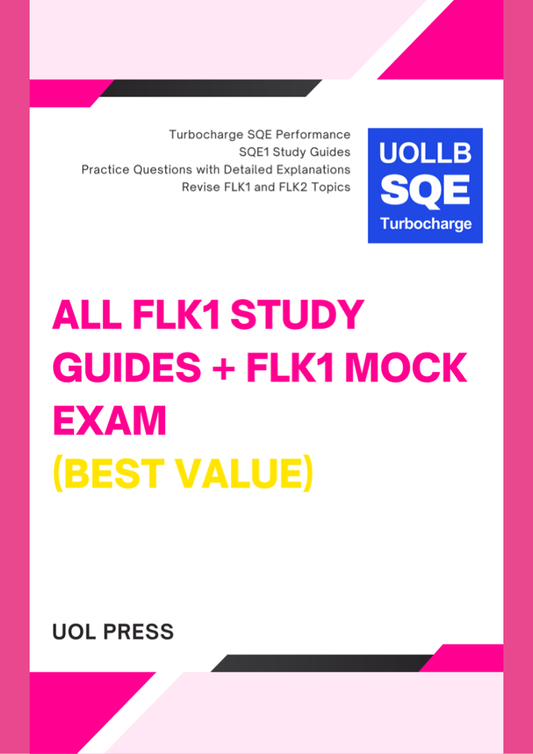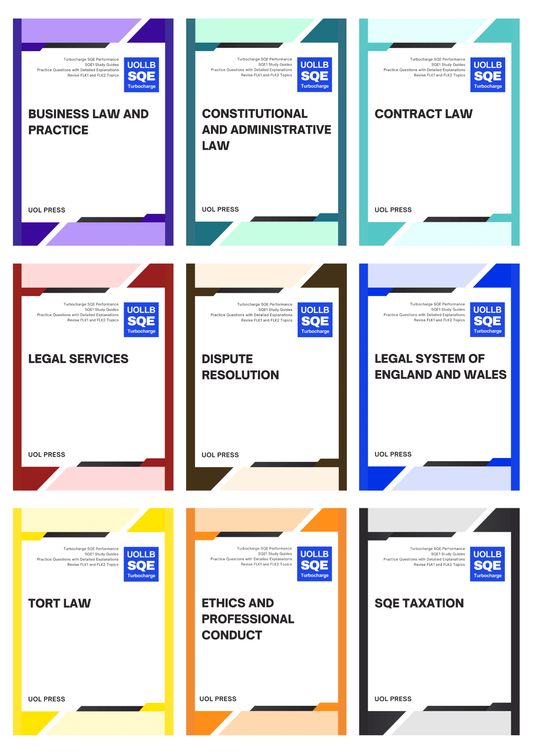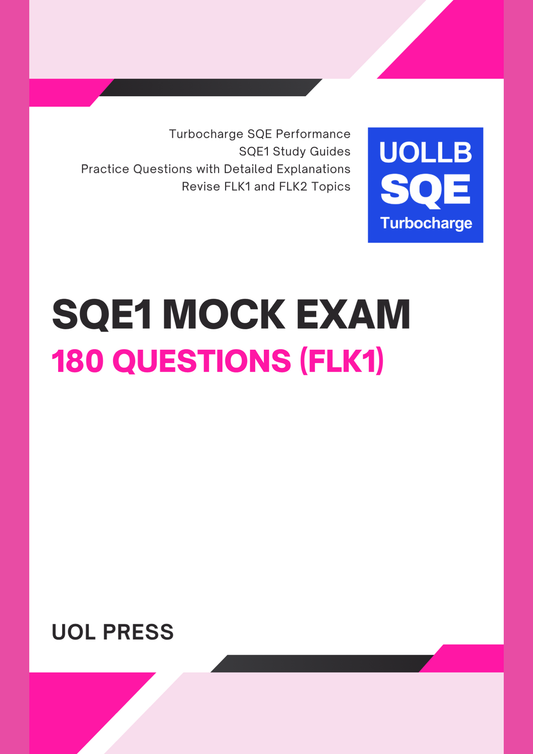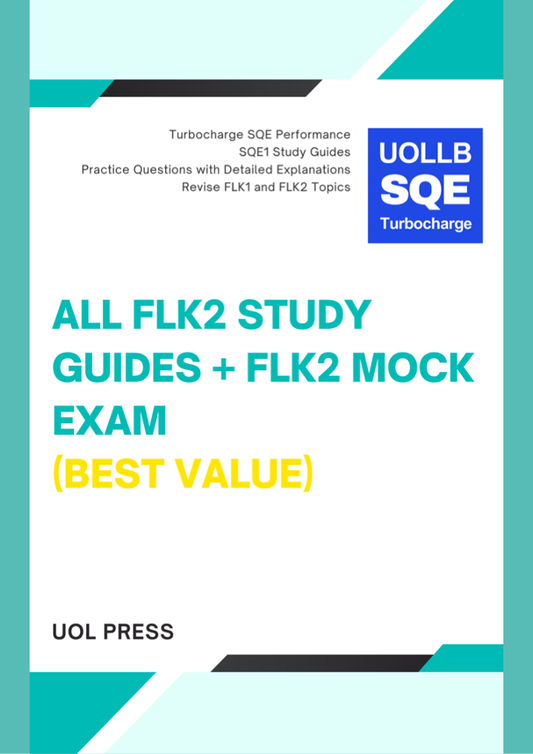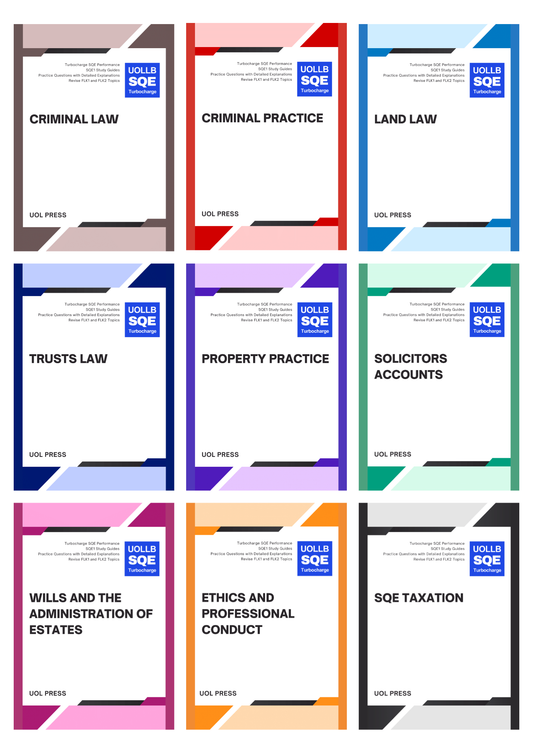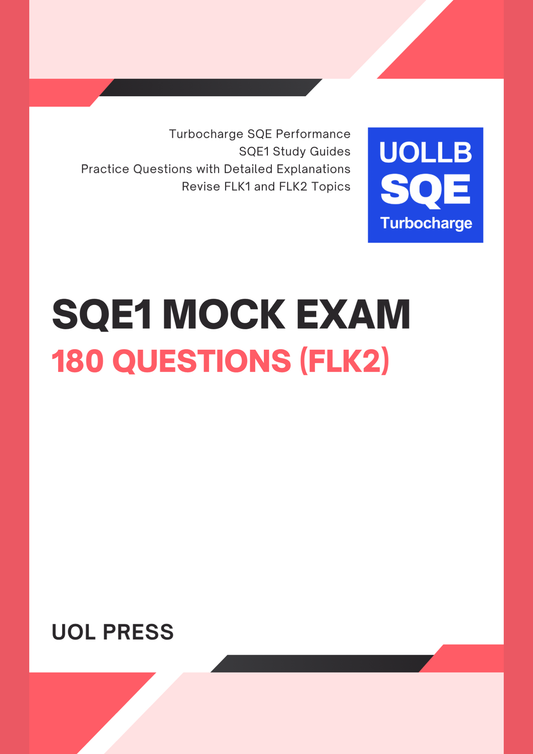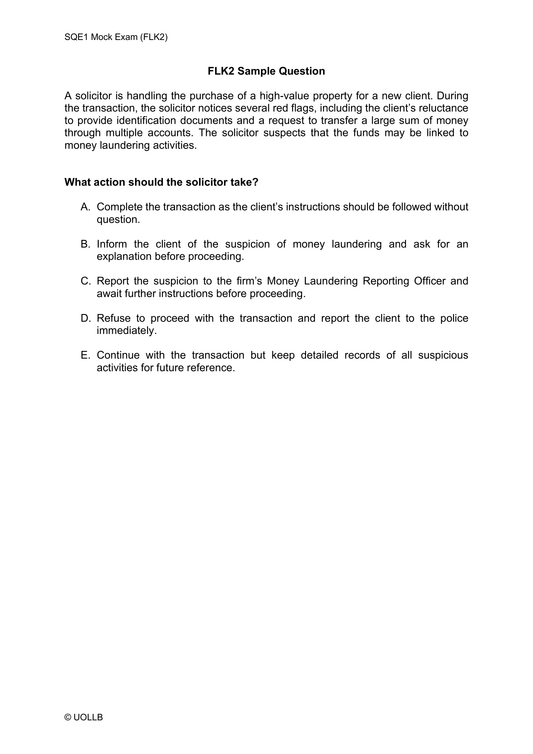How to Pass SQE1
Share
The SQE is the gateway to becoming a solicitor in England and Wales. For many aspiring legal professionals, passing SQE1 is a significant milestone. This assessment focuses on testing your functioning legal knowledge (FLK) and consists of multiple-choice questions (MCQs) across a range of legal topics. Here is a step-by-step guide to preparing for SQE1 and setting yourself up for success.
Understanding SQE1
SQE1 is a two-day exam, with each day dedicated to a specific set of legal subjects. On the first day, you will be tested on FLK1, which includes Business Law and Practice, Dispute Resolution, Contract, Tort, Legal Services, and the Legal System of England and Wales. The second day covers FLK2, which assesses Criminal Law and Practice, Land Law, Trusts, Wills and the Administration of Estates, and Property Practice. With its wide-ranging scope, the exam requires in-depth preparation across diverse legal areas.
LPC or SQE?
While the traditional Legal Practice Course (LPC) remains an option until 2032 for those who started on that route, many students are now choosing the SQE pathway. The SQE is more cost-effective, particularly for candidates who are working as paralegals or legal assistants while preparing. With SQE fees typically under £5,000 for SQE1 and SQE2, compared to LPC fees that range from £10,000 to £20,000, depending on the location and provider, the SQE has become the preferred route for many aspiring solicitors.
The Role of the GDL
For non-law graduates, completing a Graduate Diploma in Law (GDL) or a Postgraduate Diploma in Law (PGDL) can provide a solid foundation in the core legal principles tested in SQE1. The GDL / PGDL helps you build a structured understanding of key doctrines and enhances your readiness for the SQE. However, it is not mandatory under the SQE pathway and the curriculum of GDL / PGDL does not fully cover the SQE syllabus, so you will still need a preparation course to top up your FLK.
How to Prepare for SQE1
Preparation for SQE1 requires a combination of discipline, time management, and effective study strategies. For law graduates, we recommend you start by allocating 6 months to focus on reading and revising the legal manuals or SQE study guides provided by your chosen course provider. Aim to study for 10–15 hours per week if you are working full-time. Break down the syllabus into manageable sections and review each area systematically. If you are non-law graduates, we suggest you spend at least 1.5 years to catch up with what law graduates already know in additional to preparing for the SQE.
Online resources are a crucial part of modern SQE preparation. Many providers offer digital materials, which can be downloaded for offline use, allowing you to study during commutes or while travelling, such as UOLLB SQE Turbocharge. Videos, podcasts, and recorded lectures can also supplement your reading, especially for visual or auditory learners.
Practice questions are an integral part of your preparation. Try as many MCQs as possible, both during and after studying a topic, to reinforce your understanding and improve retention. Use our SQE1 Mock Exam to familiarise yourself with the exam format and difficulty level.
Practice Questions
One common issue noted by students is that practice questions provided by course providers often differ in complexity from the actual SQE1 exam. Additionally, some provider questions may contain errors or address topics not explicitly covered in the textbooks. To counter this, focus on understanding the reasoning behind each answer and aim to develop a strong grasp of legal principles rather than relying solely on rote learning. Our SQE1 Mock Exam provides detailed explanations for each practice question to make sure that you know how to come up with the correct answer.
Revision Notes
Revision notes are an invaluable tool for SQE1 preparation. Summarise each topic into concise, clear notes or flowcharts that highlight key principles, case law, and statutes. Many students find that supplementing their notes with external resources, such as high-quality SQE Study Guides published by UOL Press to deepen their understanding. During the final months of preparation, focus on condensing your notes further to create quick-reference materials for last-minute revision.
Balancing Work and Study
Many candidates preparing for SQE1 are working full-time as paralegals or in other legal roles. If this is the case for you, consider taking a few weeks off before the exam for intensive revision. While this may seem like a sacrifice of vacation time, dedicating 7–8 hours per day during this period can significantly enhance your readiness.
Exam Day Tips
The SQE test centre experience is often compared to airport security, with rigorous checks of personal items like collars and glasses to prevent cheating. The exam environment can be cold, so dress in layers and bring a jacket if needed. You will not be allowed to finish early during the morning session and use that time in the afternoon, so plan your pace accordingly.
Prepare for long, mentally taxing days. Pack sandwiches and snacks for the hour-long lunch break to keep your energy up. Ensure you have reviewed all key topics in the days leading up to the exam, and get plenty of rest to stay focused during the test.
Post-Exam Insights
Many candidates find the exam days exhausting but manageable with proper preparation. Many of them report that the SRA’s official sample questions are easier than the actual test questions. You should not solely rely on the sample questions offered by the SRA to measure the level of difficulty of the actual exam. You are suggested to thoroughly prepare and work through as many practice questions as you can.
Final Remarks
Passing SQE1 requires dedication and strategic preparation. Focus on creating thorough revision notes, practicing extensively with MCQs, and understanding the rationale behind each answer. The SQE pathway offers flexibility and cost-effectiveness, but it also demands a disciplined approach to succeed. Preparation may feel overwhelming at times, but with persistence and the right strategies, success is within reach. Good luck!
Understanding SQE1
SQE1 is a two-day exam, with each day dedicated to a specific set of legal subjects. On the first day, you will be tested on FLK1, which includes Business Law and Practice, Dispute Resolution, Contract, Tort, Legal Services, and the Legal System of England and Wales. The second day covers FLK2, which assesses Criminal Law and Practice, Land Law, Trusts, Wills and the Administration of Estates, and Property Practice. With its wide-ranging scope, the exam requires in-depth preparation across diverse legal areas.
LPC or SQE?
While the traditional Legal Practice Course (LPC) remains an option until 2032 for those who started on that route, many students are now choosing the SQE pathway. The SQE is more cost-effective, particularly for candidates who are working as paralegals or legal assistants while preparing. With SQE fees typically under £5,000 for SQE1 and SQE2, compared to LPC fees that range from £10,000 to £20,000, depending on the location and provider, the SQE has become the preferred route for many aspiring solicitors.
The Role of the GDL
For non-law graduates, completing a Graduate Diploma in Law (GDL) or a Postgraduate Diploma in Law (PGDL) can provide a solid foundation in the core legal principles tested in SQE1. The GDL / PGDL helps you build a structured understanding of key doctrines and enhances your readiness for the SQE. However, it is not mandatory under the SQE pathway and the curriculum of GDL / PGDL does not fully cover the SQE syllabus, so you will still need a preparation course to top up your FLK.
How to Prepare for SQE1
Preparation for SQE1 requires a combination of discipline, time management, and effective study strategies. For law graduates, we recommend you start by allocating 6 months to focus on reading and revising the legal manuals or SQE study guides provided by your chosen course provider. Aim to study for 10–15 hours per week if you are working full-time. Break down the syllabus into manageable sections and review each area systematically. If you are non-law graduates, we suggest you spend at least 1.5 years to catch up with what law graduates already know in additional to preparing for the SQE.
Online resources are a crucial part of modern SQE preparation. Many providers offer digital materials, which can be downloaded for offline use, allowing you to study during commutes or while travelling, such as UOLLB SQE Turbocharge. Videos, podcasts, and recorded lectures can also supplement your reading, especially for visual or auditory learners.
Practice questions are an integral part of your preparation. Try as many MCQs as possible, both during and after studying a topic, to reinforce your understanding and improve retention. Use our SQE1 Mock Exam to familiarise yourself with the exam format and difficulty level.
Practice Questions
One common issue noted by students is that practice questions provided by course providers often differ in complexity from the actual SQE1 exam. Additionally, some provider questions may contain errors or address topics not explicitly covered in the textbooks. To counter this, focus on understanding the reasoning behind each answer and aim to develop a strong grasp of legal principles rather than relying solely on rote learning. Our SQE1 Mock Exam provides detailed explanations for each practice question to make sure that you know how to come up with the correct answer.
Revision Notes
Revision notes are an invaluable tool for SQE1 preparation. Summarise each topic into concise, clear notes or flowcharts that highlight key principles, case law, and statutes. Many students find that supplementing their notes with external resources, such as high-quality SQE Study Guides published by UOL Press to deepen their understanding. During the final months of preparation, focus on condensing your notes further to create quick-reference materials for last-minute revision.
Balancing Work and Study
Many candidates preparing for SQE1 are working full-time as paralegals or in other legal roles. If this is the case for you, consider taking a few weeks off before the exam for intensive revision. While this may seem like a sacrifice of vacation time, dedicating 7–8 hours per day during this period can significantly enhance your readiness.
Exam Day Tips
The SQE test centre experience is often compared to airport security, with rigorous checks of personal items like collars and glasses to prevent cheating. The exam environment can be cold, so dress in layers and bring a jacket if needed. You will not be allowed to finish early during the morning session and use that time in the afternoon, so plan your pace accordingly.
Prepare for long, mentally taxing days. Pack sandwiches and snacks for the hour-long lunch break to keep your energy up. Ensure you have reviewed all key topics in the days leading up to the exam, and get plenty of rest to stay focused during the test.
Post-Exam Insights
Many candidates find the exam days exhausting but manageable with proper preparation. Many of them report that the SRA’s official sample questions are easier than the actual test questions. You should not solely rely on the sample questions offered by the SRA to measure the level of difficulty of the actual exam. You are suggested to thoroughly prepare and work through as many practice questions as you can.
Final Remarks
Passing SQE1 requires dedication and strategic preparation. Focus on creating thorough revision notes, practicing extensively with MCQs, and understanding the rationale behind each answer. The SQE pathway offers flexibility and cost-effectiveness, but it also demands a disciplined approach to succeed. Preparation may feel overwhelming at times, but with persistence and the right strategies, success is within reach. Good luck!
